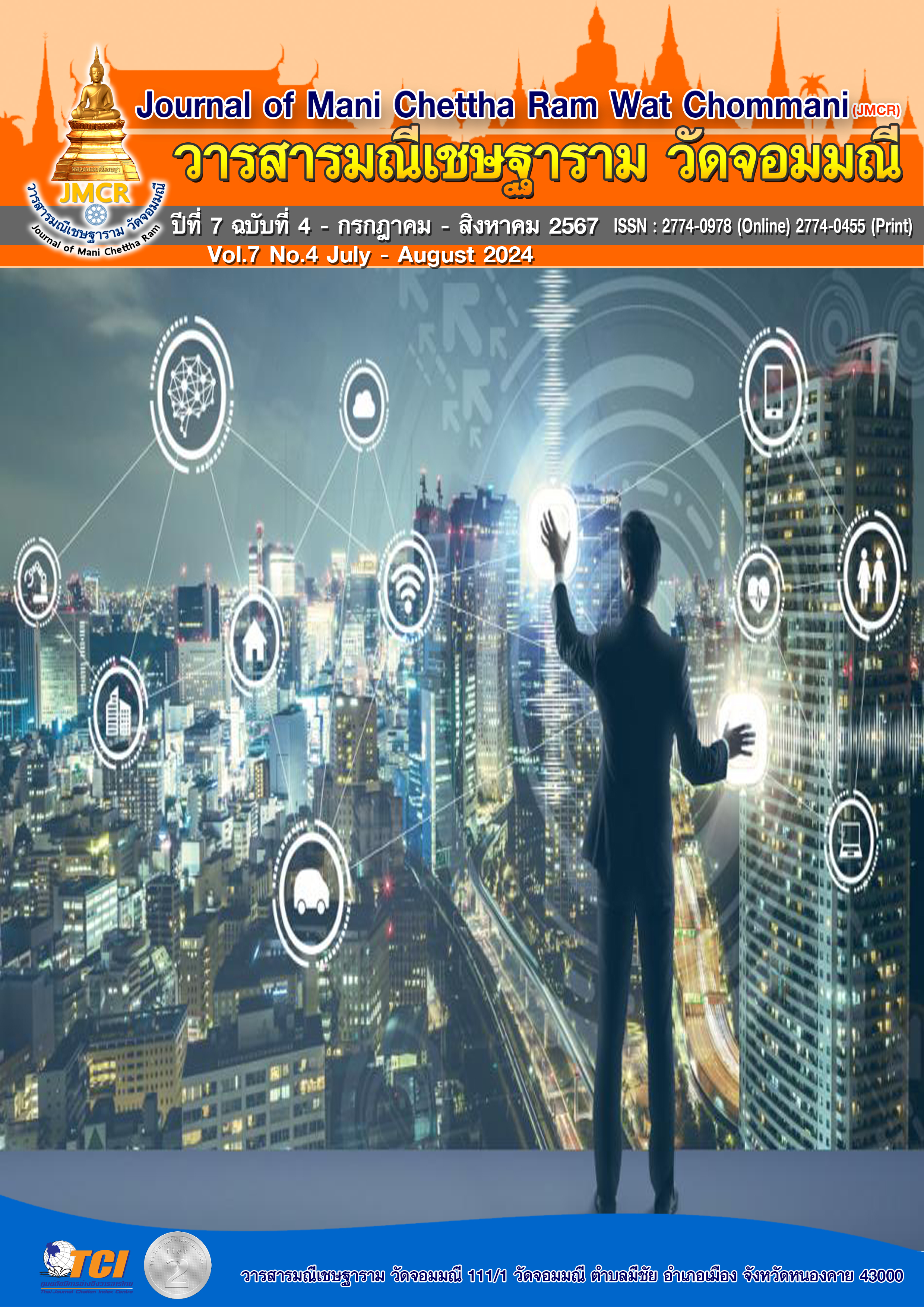ORGANIZATIONAL CULTURE AFFECTING THE DEVELOPMENT OF WORK PERFORMANCE OF TEACHERS IN SECONDARY LEVEL UNDER THE OFFICE OF PHRA NAKON SI AYUTTHAYA SECONDARY EDUCATION SERVICE AREA
Keywords:
Organizational Culture, Work Performance, Secondary SchoolAbstract
The objectives of this research were to study: 1) The organizational culture of secondary schools 2) The performance of teachers in secondary schools 3) The relationship between organizational culture and teachers' performance in schools 4) The aspects of organizational culture that affect teachers' performance in schools. The sample group consisted of 302 teachers from secondary schools under the jurisdiction of the Phra Nakhon Si Ayutthaya Secondary Education Service Area Office, selected by simple random sampling. The research instrument was a questionnaire with a reliability of 0.94 for both the organizational culture and teachers' performance in secondary schools. The statistics used for data analysis included mean, standard deviation, Pearson correlation coefficient, and multiple regression analysis.
The research findings were as follows:
- Overall, the organizational culture was at a high level. When considering each aspect, the highest mean was found in the aspect of beliefs, followed by the creation of heroes, norms, values, and the lowest mean was in the aspect of environmental arrangement.
- The overall performance of teachers in secondary schools was at a high level. When considering each aspect, the highest mean was in the aspect of teachers' duties, followed by learning management, and the lowest mean was in the aspect of relationships with parents and the community.
- The relationship between organizational culture and teachers' performance in secondary schools was positively correlated at a relatively high level, with statistical significance at the .01 level.
- Two aspects of organizational culture, beliefs and the creation of heroes, significantly affected teachers' performance in secondary schools, with statistical significance at the .05 level, predicting 25% of teachers' performance in secondary schools. The regression equations in raw scores and standard scores are as follows: Raw score prediction equation: Ŷ = 5.199 + (-0.120X5) +
(-0.147X2) Standard score prediction equation: Ẑ = (-0.137X2) + (-0.143X5)
References
กัญญ์นรา คนการ. (2554). ความสัมพันธ์ระหว่างวัฒนธรรมองค์การกับการเป็นองค์การแห่งการเรียนรู้ของโรงเรียน ในสังกัดเทศบาลนครแหลมฉบัง อำเภอศรีราชา จังหวัด ชลบุรี. ใน งานนิพนธ์การศึกษามหาบัณฑิต, สาขาวิชาการบริหารการศึกษา. มหาวิทยาลัยบูรพา.
กัญญา รอดพิทักษ์ (2552). วัฒนธรรมองค์การที่มีผลต่อความผูกพันต่อองค์การของ พนักงานธนาคารออมสิน ฝ่ายกิจการนครหลวง 3 เขตศิริราช. ใน ภาคนิพนธ์ บธ.ม. ธนบุรี: มหาวิทยาลัยราชภัฏธนบุรี.
ชวน สุขเจริญ. (2553). ปัญหาการดำเนินงานระบบดูแลช่วยเหลือนักเรียนระดับชั้นมัธยมศึกษา อำเภอบางละมุง จังหวัดชลบุรี. สาขาการบริหารการศึกษา. มหาวิทยาลัยบูรพา.
ชัยอนันต์ มั่นคง. (2564). แนวทางการบริหารงานวิชาการเพื่อส่งเสริม การจัดการเรียนการสอนของโรงเรียนมัธยมศึกษา สังกัดสำนักงานเขตพื้นที่การศึกษามัธยมศึกษา เขต 2 ในยุคนิวนอร์มัล. วารสารมหาจุฬาวิชาการ, 8(3), 126.
ปิยะดา น้อยอามาตย์. (2558). ความสัมพันธ์ระหว่างวัฒนธรรมองค์กรกับประสิทธิผลของ โรงเรียน สังกัดสำนักงานเขตพื้นที่การศึกษามัธยมศึกษา เขต 27. .ใน วิทยานิพนธ์ ค.ม. มหาวิทยาลัยราชภัฏร้อยเอ็ด.
พวงรัตน์ ทวีรัตน์. (2540). วิธีการวิจัยทางพฤติกรรมศาสตร์และสังคมศาสตร์. กรุงเทพมหานคร: สำนักทดสอบทางการศึกษาและจิตวิทยา มหาวิทยาลัยศรีนครินทร์วิโรฒ.
ไพบูลย์ ช่างเรียน. (2543). การบริหารคุณภาพ = Quality Management : มาตรฐานสากล ISO 900 และ TQM. พิมพ์ครั้งที่ 2. กรุงเทพมหานคร: สมธรรม.
มานพ ชูนิล. (2537). พฤติกรรมของบุคคลในองค์การ. กรุงเทพมหานคร: โปรควอลิตี้พริ้นท์แอนด์ มีเดีย.
เสนาะ ติเยาว์. (2551). หลักการบริหาร. พิมพ์ครั้งที่ 9. กรุงเทพมหานคร: มหาวิทยาลัยธรรมศาสตร์.
Krejcie, R.V., & D.W. Morgan. (1970). Determining Sample Size for Research Activities. Educational and Psychological Measurement.
Likert, R. (1967). The Method of Constructing and Attitude Scale: Reading in Attitude Theory and Measurement. New York: Wiley & Son.




